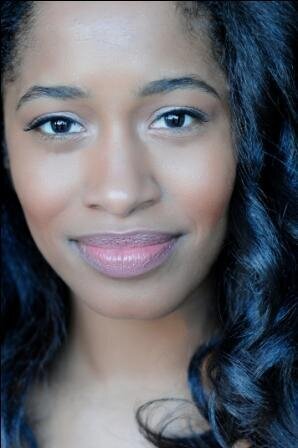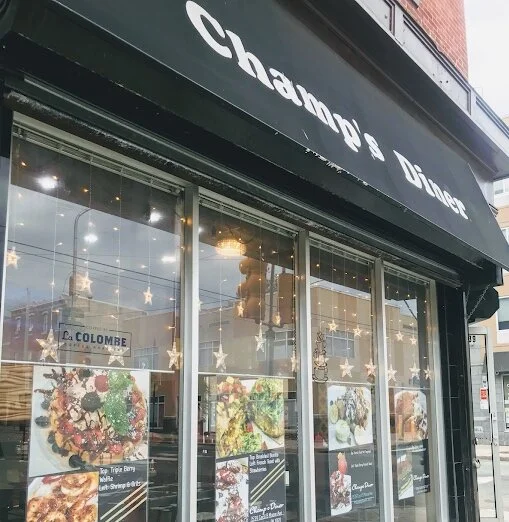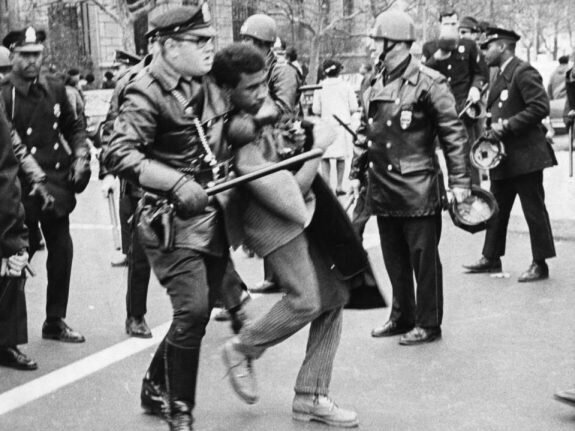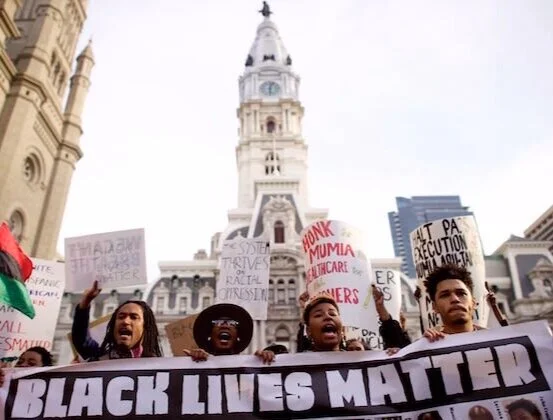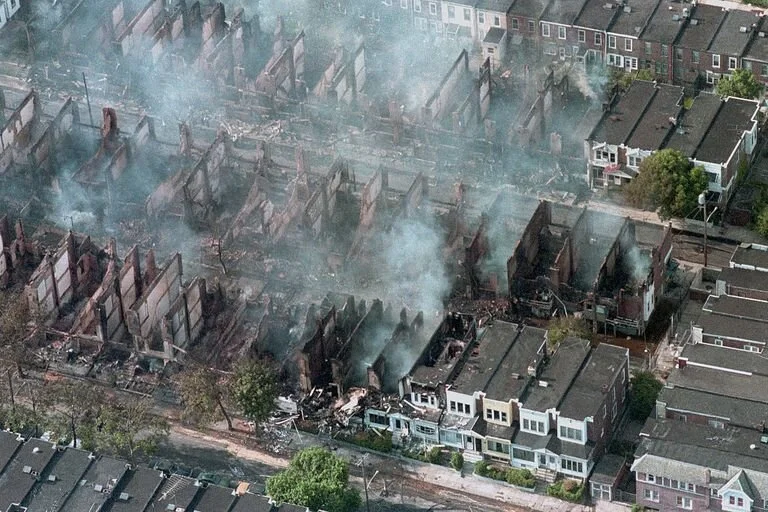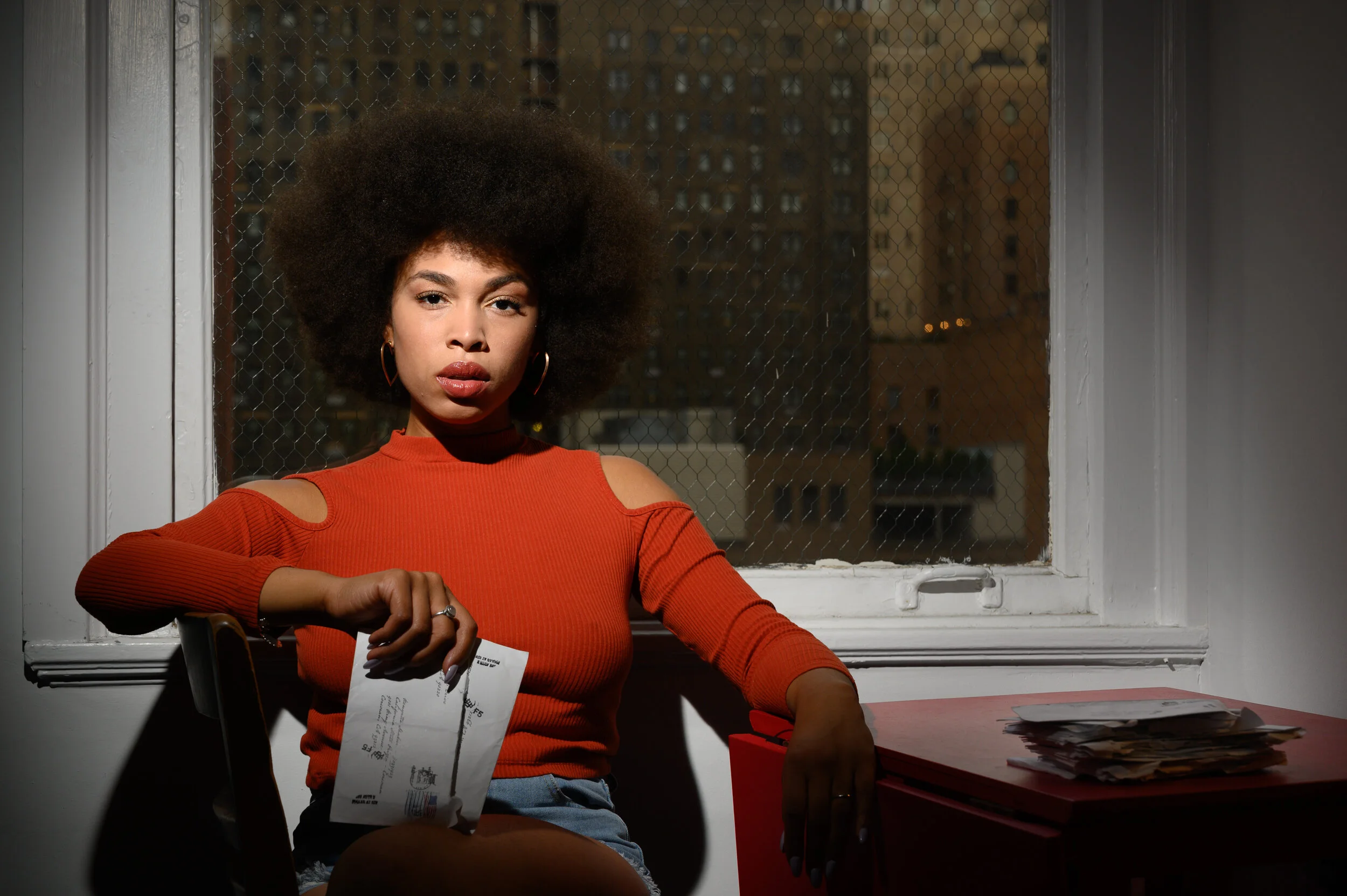"[It’s] not a period piece. It is us right now." Director Amina Robinson on SUNSET BABY
Hello, Azuka friends and family —
Suddenly, it seems, Sunset Baby is upon us. In just one week, lights rise on the show’s first preview. Sunset Baby revolves around the reunion of a former Black revolutionary and political prisoner with his estranged daughter, Nina. At the center of this fraught and broken relationship are the now historically significant and valuable letters Nina’s mother wrote to her father while he was in jail. Caught in a tug-of-war over these documents, father and daughter confront their shared past.
The bringing to life of Dominique Morisseau’s script is helmed by director (and recent Barrymore winner!) Amina Robinson. I asked her some questions, about herself, about the show — and she gave me some answers. Here’s what she had to say.
Where are you from originally, where are you now — and where have you been in between?
Champ’s Diner at 1539 Cecil B. Moore Avenue
I am all the way a Philly lady. I grew up in South Philadelphia, am an alum of Philadelphia High School for Girls', and also am a double Temple University Alum BA (Acting) and Masters of Fine Arts (Acting). I left for a while while I was actor in NYC and have done lots of fun work as an actor. I moved back to Philly in 2012, when my son was a year old.
If people are in from out of town to see the show — or just looking to explore the city more — what’s your favorite spot in Philly?
I love Champ’s Diner on Temple University's main campus. Great breakfast.
We like to celebrate the OutCATS and UnderDOGS of the Azuka family. Do you have any pets? (Bonus for pictures!)
I am not an animal person... yikes.
Lucas’ note: It’s okay, we’ll forgive you.
To Sunset Baby…Dominique Morisseau is originally from Detroit, but has spent a lot of time in New York City, where Sunset Baby takes place. Morisseau has said there is “a lot of activist spirit in New York.” What do you think performing this play in Philly brings to it?
Philly, like New York, has a huge activist spirit. A lot of the things that were going on in New York during this time were also happening in Philadelphia. I have very personal experiences growing up surrounded by the wave of Black Power, crack being pumped into the Black community, blight, and the aftermath of living with parents who were raising me in that world. That portion of our history is me. It is the same legacy.
Police disrupt a protest by black high school students on the Philadelphia Board of Education in 1967 // Photo from Special Collections Research Center, Temple University Libraries
A Black Lives Matter protest outside Philadelphia’s City Hall in 2015 // Photo by Mark Makela/Getty Images
The aftermath of the 1985 bombing of MOVE, a black liberation group, by the Philadelphia Police Department. The bombing killed 11 people, including 5 children, and destroyed 65 homes in Cobbs Creek, a predominantly African American neighborhood in West Philly. // Getty Images/Bettmann
In the rehearsal room you’re, in part, using Dominique Morisseau’s playwright’s note to steer the play. Can you talk a little bit to that and what you find most helpful or compelling in her note?
I find her playwright's note most compelling in two ways. First, she speaks to exploring the relationship and aftermath of our activist struggles and its impact on the families. She raises questions about what is sacrificed in ourselves, and our close relationships when we are forced to choose between our people as a whole, and the individuals in our family. This is such a complex cultural dynamic that is present for may oppressed people. It is so gratifying to work on a piece where I get to learn and explore these ideas artistically.
Victoria Goins plays Nina in Sunset Baby // Photo by Johanna Austin/AustinArt.Org
Secondly, she says she was inspired by the work of Tupac Shakur. How he existed in an interesting duality. At one moment he is rapping about topics that edify and illuminate our condition as Black Americans, and then will rap about things that seemingly have the opposite purpose. This duality exists as part of Black cultural consciousness, sure. In studying this play specifically, she has woven a story that has characters and moments that at the same time are itself, and its opposite. We see fully realized and nuanced humans onstage that force us to question our notions of who and what we expect from people and believe people to be. That excites me.
Tupac is an important influence, and Nina Simone’s music also plays a role — you played some Nina Simone at first rehearsal. Is music often part of the rehearsal process for you, in terms of building a world? (And do you have a personal favorite Nina Simone or Tupac song?)
I love Nina Simone's version of “Pirate Jenny” from Threepenny Opera!
What do you think it means to perform this play right now in 2019, as opposed to when it premiered in 2013? Does it change anything, or not, since the historical context of the piece stretches back to the 60s and beyond?
Most unfortunately for us as a society, this play, the context, the issues, the people, are still just as relevant today as they were in 2013... as they were in the 60's. I think we tend to view this "history" as if it were long ago. It in fact was not. I am not old, and yet I am a product just as Nina of this exact same time period. For example, when I was born, my mother and father were members of The Nation of Islam. My mother particularly, for the Black empowerment aspect at the time. My name, and the names of most of my family and childhood friends reflect this exact same time covered in the piece. I grew up witnessing the very crack epidemic that took the life of Nina's mother Ashanti in the play. This play is not a time capsule. It is not a period piece. It is us... right now.
How does Sunset Baby fit into Azuka’s mantra of “Outcasts and Underdogs”?
Yikes! Can I say what I really want to or should I be politically correct? I will speak my truth. "Outcasts and Underdogs"... until America reconciles the legacy of the enslavement of Africans and what it has created, that we are living with now, any story of Blacks in American somehow represents a story or "outcasts and underdogs."
Amina speaks to one of the foundational ideas of Sunset Baby: the collision of the personal and political. Her personal, familial connection to the text, on a micro scale — and the complex, macro political context that shaped that. They’re inextricable from each other, a mesh that pulls at the players of Dominique Morisseau’s script.
To see Amina, the cast (be on the look out for interviews with them very soon), and the rest of the Sunset Baby team’s work on these words and this world, you can reserve your Pay What You Decide ticket today. The show runs November 6 - 24. Thank you, and we hope to see you at the theater!
— Lucas

